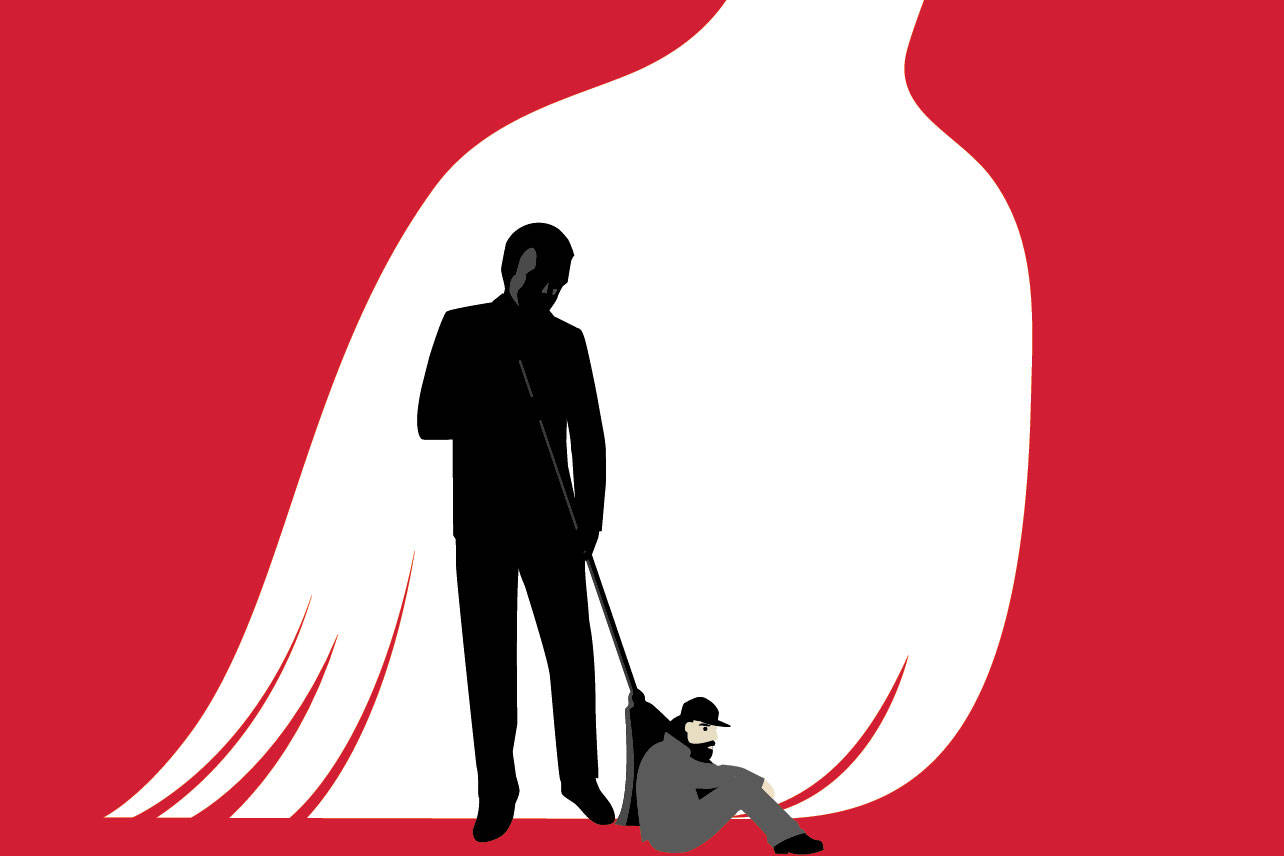On Wednesday, the City Council will hold its second hearing on Mayor Ed Murray’s proposed soda tax.
If past is prologue, we can be sure that one main argument trotted out by opponents of the measure will be that the tax represents an assault on Seattle’s poor and working-class residents. This argument is twofold: First, poor people drink more soda than rich people. Second, soda distribution is a working-class occupation, from the drivers who deliver it to the small-business owners who sell it.
You can’t fault opponents of the tax for taking this tack. Class is big right now in politics, both nationally and locally. Our billionaire president, we’re told, was elected thanks to his ability to better relate to the (white) working class than his millionaire opponent. Concerns over how state and local sales and property taxes disproportionately penalize the poor have led to a long-overdue discussion in Seattle about how we can shift more of the burden to the rich. In this way, focusing on the tax’s possible negative effects on the poor can seem like a trump card (pardon the expression) for the opposition to play.
We submit that it’s not. In fact, a review of the facts shows that the real enemy of the poor is the sugar industry itself, a role it has played for a half-century at least.
First, those who profit off sweet drinks have made a concerted effort to mislead the public about the adverse health effects of sugar. It was recently revealed that in the 1960s, the sugar industry funded three Harvard scientists who published studies that downplayed the negative health impacts of sugar and instead implicated fatty foods. The studies proved instrumental in the creation of the U.S. Department of Agriculture’s first dietary guidelines in the late ’70s. Just two years ago, Coca-Cola faced a firestorm of criticism from dietary experts for putting $1.5 million into a campaign that blamed America’s obesity epidemic on a lack of exercise, not diet. A professor of nutrition at New York University told The New York Times that the effort was straight from the playbook of the tobacco industry, which for decades used bogus science to raise unreasonable doubt about the negative effects of smoking: “Get these researchers to confuse the science and deflect attention from dietary intake.”
Here’s the un-confusing truth: If you drink one to two sugary drinks a day, you have a higher risk of developing diabetes and a higher risk of becoming obese.
Meanwhile, U.S. taxpayers continue to heavily subsidize the production of corn, which in turn leads to a glut of cheap high-fructose corn syrup on the market. The perverse effect of this has been to create a huge economic incentive to consume junk food. In 2011, obesity researcher Dr. Adam Drewnowski looked at how many calories he could buy with a dollar in various food categories—he was able to purchase 900 calories of soda, but only 170 of orange juice. Indeed, one of the first questions we should ask when debating whether to make sugar more expensive in Seattle is, why is it so cheap in the first place?
There is strong evidence that these efforts—to keep the health effects of sugar confusing, while keeping sugar itself cheap—have had a disproportionately negative effect on the poor and minorities. A 2008 study published in the Journal of Urban Health on the demographic spread of soda consumption in New York City found that U.S.-born blacks, Puerto Ricans, and Mexican Americans consumed more soda than whites; and individuals with less than a college education and those living in low-income households were more likely to be frequent consumers of soda than their counterparts. Additionally, the “prevalence of frequent soda consumption was highest amongst obese and overweight individuals.”
In addition, the estimated $16 million raised by the tax will be devoted to programs that will help the poor. This includes expanded pre-K education and healthy food access to fruits and vegetables for those on the Supplemental Nutrition Assistance Program. The proposal also calls for a tax on diet sodas, which are more popular with wealthier consumers.
Does this mean the soda tax as proposed is perfect policy? Of course not. The policy could drive some businesses out of Seattle and into the suburbs. And it certainly doesn’t address the more fundamental issues of how we raise revenue in this city. Yet those are secondary concerns compared to the equity issue put forth by tax opponents. And the idea that this tax represents an attack on the poor just doesn’t have much pop.
editorial@seattleweekly.com





